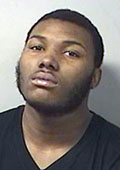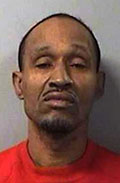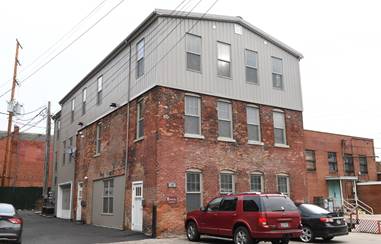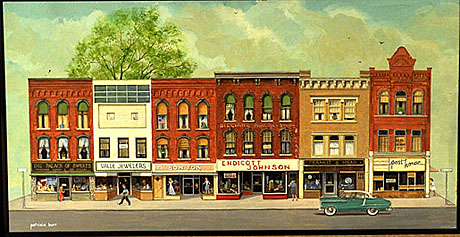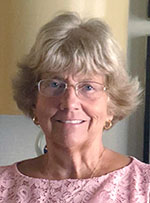Video Sponsor
.pane-node-body img {background: none !important; border: 0 !important; margin: 0 !important; padding: unset !important; padding-left: 1px !important }
broadstreet.zone(69076)
Writing 15,000 letters and sending them to Albany -- instead of one from a local legislative body such as the Batavia City Council -- would be the most effective way for pro-life advocates to let Gov. Andrew Cuomo and state legislators know exactly how they feel about the recently passed New York’s Reproductive Health Act.
That is the opinion shared by Council President Eugene Jankowski following Monday night’s emotional 90-minute public comment portion of the board’s Business Meeting at City Hall.
About 150 people, many of them connected to the Right to Life movement, packed Council chambers, with about half of them having to stand while 18 speakers took their turns at the podium.
Fourteen of them spoke in favor of City Council drafting a letter in opposition of the RHA – with some calling for Batavia to designate the community as a “sanctuary city for the unborn” -- and forwarding it to Gov. Cuomo.
The passing of the law last month, which includes provisions that permit abortions after 24 weeks if the fetus is not viable or the health of the mother is at risk, became a hot topic in the city after Batavian Chris Connelly, a self-described “man made in the image of God,” spoke out against it at the Jan. 28 Council meeting.
His strong comments prompted City Council to consider having City Manager Martin Moore draft a letter in opposition of the law and placing it on a future meeting’s agenda. News of that decision compelled many residents on both sides to write or call their council representative, and ultimately led Jankowski to seek more public input before deciding how to proceed.
And, if he was looking for more feedback, he surely wasn’t disappointed as the speakers shared a range of viewpoints in an effort to persuade the nine council members.
Lifelong Batavian Kathy Stefani, a Right to Life organizer, said that abortion has become legal “right up to the moment of birth in this country” but that it’s a federal crime to destroy an egg of a bald eagle.
Noting that the word “fetus” is Latin for “little one,” Stefani said “we are here tonight for the little ones.”
“It’s okay to give a lethal injection to a living infant but definitely not to a hardened convicted criminal,” she said. “We’re not asking for a raid on the state capital or a march down Main Street, just a letter stating right from wrong. Write a letter and make Batavia a sanctuary city …”
Jon Speed, a church pastor from Syracuse, was more graphic in his address, asking “Which is the best way to kill a baby -- a pill, saline solution, surgically in the second trimester or scissors into the neck in the third trimester. There is no good way to kill a baby.”
He spoke out against Planned Parenthood – leading to a bit of shouting in opposition to that – and urged Council to make Batavia a sanctuary city of the unborn.
“We are called to love our neighbors … born and unborn … If not, and then appointed for the slaughter, the blood will be on your hands.”
Connelly took another turn at the microphone and ramped up his comments.
“God said before I formed you in the womb, I knew you,” Connelly said. “(By taking) these positions, the blood runs in our streets. What about the children who are butchered, who are sold as commodities?”
Calling abortion “disgusting, reprehensible and unthinkable,” Connelly said that “even debating this is a signal that we need repentance before a holy and just God.”
Another speaker, Dan Devlin of Buffalo, president of an organization known as New York Oath Keepers, said he sees abortion as a constitutional issue and quoted the preamble to the Constitution of the United States to support his view.
There are two groups, not one, that this nation was established for,” he said. “We the People … to secure the Blessings of Liberty to ourselves and our Posterity. Who is your posterity … It is all of our descendants until the end of time. The succeeding generations, and the unborn descendants in the womb are clearly our posterity.”
And Alex Feig of Medina asked Council to follow its own vision statement, reading several points from the city’s website, including “our children, at all ages, will have choices to grow, learn, live, play and work in our community,” and “our city will serve as a model for other small cities in its approach to an overall positive quality of life for all its community members.”
He called for Council to not only write a letter in opposition to the RHA but also to pass an “emergency ordinance” to prohibit abortion in the city.
On the other side of the debate, Nikki Calhoun of Le Roy spoke of the centuries of those seeking to control women, causing them to suffer at the hands of government and their husbands, and preventing them from voting and seeking higher education.
She defended the local Planned Parenthood’s various services, including counseling for those with little or no insurance.
“Where are these girls supposed to turn to when they need to talk?” she said.
She added that she respected everyone’s opinion and held a belief in a higher being, but also respects women who can decide for themselves.
“We’re not someone’s property,” she said. “I implore you to mind the business of the city and not our bodies.”
Erica O’Donnell of Batavia said she approached the city in August of 2017 about taking a stand about Confederate flags being flown in the city after a neo-Nazi rally turned into a deadly tragedy in Charlottesville, Va., but was told that Council refrained from issues other than city business.
“With this (RHA) bill, three branches of state government passed it,” she said. “The city decided against (taking a stand) then, and I hope that going forward you take the same approach.”
Amber Hainey of Mount Morris said a woman’s right to choose has been a law since 1973 (Roe v. Wade) and “we’re done having this conversation. Women have a right to their bodies and their reproductive health.”
Her comments were echoed by Batavian Rachel Curtin, who stated that her reproductive rights are her own, and for Council “to focus on city matters.”
At the end of the public comments – after Oakfield resident Brian Thompson’s call for Council to take advantage of the opportunity to make a “historic” decision for life and for more people to adopt children and after Batavian Frank Klimjack encouraged everyone “to write that letter, send that email and make that phone call” – it was the council members’ turn to respond.
Council Member Rose Mary Christian said she disagreed with those who said it wasn’t part of Council’s duties and said that she was in favor of sending a letter to Gov. Cuomo.
“This is a state issue because he decided to bring this forth and we do have a right,” Christian said, noting that she received 35 emails – 30 of them from people in favor of sending the letter.
She went on to say that abortion, especially in the third trimester, is “barbaric and murder.”
“With (building) a wall, they call it immoral. What the hell? Don’t they call it immoral to kill a baby?”
Council Member Robert Bialkowski said he doubted if a letter from City Council would have any impact in Albany.
“We have a governor now … writing laws … and they don’t care about this part of the world,” he said, condemning laws that promote gambling, legalization of marijuana and pay raises for prisoners.
“The majority of the people elected him … and in Erie County he’s very strong there. I encourage people next time you go to vote, think of it.”
Jankowski said personally he has “no qualms about sending this letter, but it’s not about me.”
“We represent all people in the City of Batavia and I owe my obligation to help people on both sides of this argument … as City Council we can’t fairly represent one side or another.”
He then said he would like Council to “back out of this as a body” and suggested everyone to contact their state representatives.
“I’m going to do my own (letter). I think 15,000 would raise my eyes more than one letter representing 15,000. Fifteen thousand letters dumped on his doorstep … he’d have to take note of that.”
Undeterred, Christian asked City Attorney George Van Nest about the legality of sending a letter.
Van Nest said it cases such as this, a consensus of the board would determine what action to take.
“I’d like to do it,” she said. “Would anyone else like to do it with me so we can send a letter as a body?”
Council Member John Canale weighed in, stating that he was torn over what to do after getting more feedback from constituents over this issue than any other in his eight years of service.
“I consider myself a Christian and try to live my life under Christian values, but my problem is this … I was elected by not just Republicans and not just Christians,” he said. “I now have to make a decision … I say to all of you, put yourselves in my seat; I’m very undecided.”
Canale requested that the issue be tabled to allow time for “soul-searching and to talk to our families.”
Bialkowski suggested the drafting of a resolution to be brought to the next Conference meeting on Feb. 25 and Council Member Kathleen Briggs tried to call for a vote, but that didn’t fly. In the end, Jankowski said if a council member wanted to draft a letter, it would go to the Conference meeting and they would vote on it.
“I’ll do it,” Christian said.
And, judging by her supporters’ passionate appeals, she’ll probably have many people offering to help her write it.


